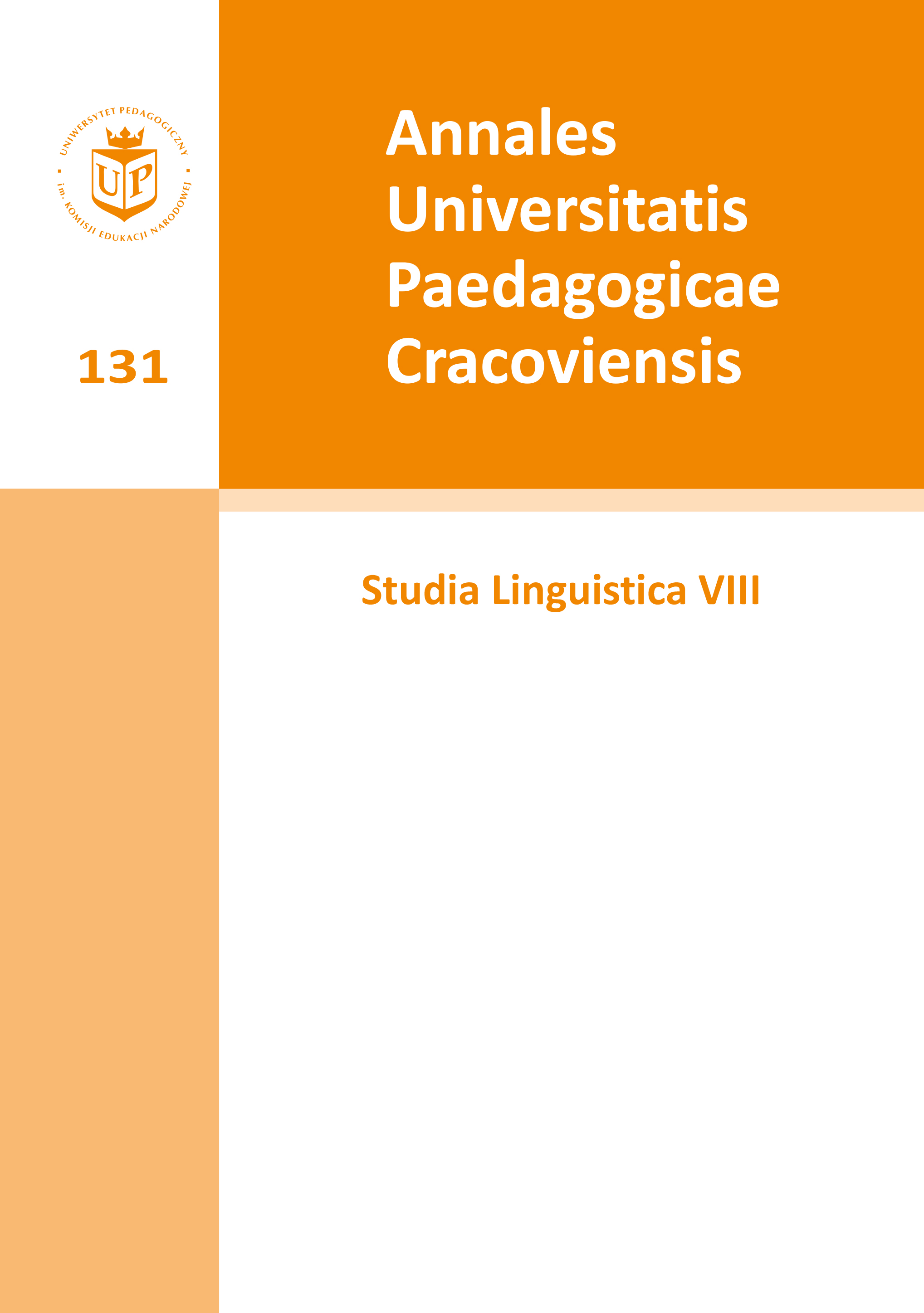Przemówienie na Wawelu – Józef Piłsudski o tradycji i spuściźnie wielkiej poezji romantycznej
Main Article Content
Abstrakt
In the article, the rhetoric investigative apparatus is used to analyse the speech delivered by Józef Piłsudski on 28 June 1927 on the occasion of placing Juliusz Słowacki’s remains in the Royal Tombs at Wawel Castle. The analysis allowed for distinguishing the most important ideas communicated in the speech. These include: - - liberty as the greatest value in the life of both the individual and the whole nation; - - man as the subject of history; - - the utmost importance of the romantic tradition in the history of Poland. Furthermore, the analysis has revealed distinctive features of the occasional speech that is typical for spectacular oratory (genus demonstrativum).
Downloads
Article Details

Utwór dostępny jest na licencji Creative Commons Uznanie autorstwa – Użycie niekomercyjne – Bez utworów zależnych 4.0 Międzynarodowe.
Autor, zgłaszając tekst do redakcji czasopisma „Annales Universitatis Paedagogicae Cracoviensis. Studia Linguistica”, zaświadcza, iż jest on rezultatem wyłącznie jego własnej twórczości, że treść artykułu nie była dotychczas publikowana oraz że utwór nie narusza w żadnym stopniu praw autorskich ani praw pokrewnych innych osób, jak również innych praw osób trzecich, a także, że niczyje prawa do utworu (lub jego jakiejkolwiek części) nie zostały pominięte. Po podpisaniu umowy prawa majątkowe do opublikowanych materiałów zostają przeniesione na Uniwersytet Komisji Edukacji Narodowej w Krakowie.
Rocznik „Annales Universitatis Paedagogicae Cracoviensis. Studia Linguistica” to czasopismo o otwartym dostępie, a cała jego zawartość jest udostępniana bezpłatnie dla użytkowników i instytucji na zasadach licencji Creative Commons CC-BY-NC-ND 4.0 (uznanie autorstwa, użycie niekomercyjne, bez utworów zależnych). Na podstawie tej licencji autorzy zgadzają się, że ich prace mogą być zgodnie z prawem ponownie wykorzystywane do jakichkolwiek celów, za wyjątkiem celów komercyjnych, bez konieczności uzyskania uprzedniej zgody ze strony autora lub wydawcy. Każdy może prace te czytać, pobierać, kopiować, drukować, rozpowszechniać oraz przetwarzać, pod warunkiem poprawnego oznaczenia autorstwa oraz oryginalnego miejsca publikacji. Publikowanych tekstów nie można wykorzystywać do tworzenia utworów zależnych (np. do tłumaczenia ich i publikowania w innym języku bez zgody wydawcy). Jest to zgodne z definicją otwartego dostępu BOAI (Budapest Open Access Initiative) „Studia Linguistica”nie pobiera opłat za składanie artykułów ani ich przetwarzanie.
Autor, przesyłając artykuł do redakcji „Studia Linguistica”, bezwględnie zgadza się z poniższymi punktami:
-
Oświadczam, że jestem Autorem lub Współautorem nadesłanego tekstu. Przesłany tekst nie był nigdzie publikowany, jest całkowicie oryginalny i nie narusza w żadnym stopniu praw autorskich ani praw pokrewnych innych osób, jak również innych praw osób trzecich, a także, że niczyje prawa do utworu nie zostały pominięte.
-
Oświadczam, że nadesłany tekst nie został złożony do recenzji lub/i publikacji w innym czasopiśmie.
-
Przyjmuję do wiadomości, że Autor ponosi pełną odpowiedzialność za każdy przypadek plagiatu, niezależnie od tego, czy został on wykryty podczas procesu recenzji, czy po publikacji w „Studia Linguistica”.
-
Oświadczam, że ponoszę pełną odpowiedzialność finansową i prawną za wszelkie roszczenia związane z utworem.
-
Potwierdzam uznanie wszystkich źródeł danych wykorzystanych i cytowanych w badaniach.
-
Potwierdzam, że artykuł został wykonany z należytą starannością zgodnie ze standardami edytorskimi „Studia Linguistica”.
Bibliografia
Arystoteles, 2001, Retoryka, wstęp i tłum. H. Podbielski, Warszawa.
Google Scholar
Curtius E.R., 1972, Topika i topoi, „Pamiętnik Literacki”, z. 1.
Google Scholar
Korolko M., 1990, Sztuka retoryki. Przewodnik encyklopedyczny, Warszawa.
Google Scholar
Lausberg H., 2002, Retoryka literacka, Bydgoszcz.
Google Scholar
Lichański J.Z., 2000, Retoryka, Warszawa.
Google Scholar
Marek Fabiusz Kwintylian, 1951, Kształcenie mówcy, Wrocław.
Google Scholar
Passowicz W., Gaczoł E., 1999, Kraków wczorajszy, Gliwice.
Google Scholar
Perelman Ch., 2002, Imperium retoryki. Retoryka i argumentacja, tłum. M. Chomicz, Warszawa.
Google Scholar
Piłsudski J., 1937, Pisma zbiorowe, Warszawa 1937, t. I–X.
Google Scholar
Stachurski E., 1998, Słowa-klucze polskiej epiki romantycznej, Kraków.
Google Scholar
Sztankóné Stryjniak E., „Pisma Józefa Piłsudskiego na tle polskiej tradycji retorycznej”, maszynopis.
Google Scholar
Szymanek K., 2001, Sztuka argumentacji. Słownik terminologiczny, Warszawa.
Google Scholar
Witkowska A., 1986, Literatura romantyzmu, Warszawa.
Google Scholar
Ziomek J., 1990, 2000, Retoryka opisowa, Wrocław.
Google Scholar
